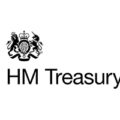Benchmarks for emissions trading – general principles for emissions scope
Benchmarks within emissions trading schemes are used to determine the level of free allocation of permits to sectors at the risk of carbon leakage. This paper analyses how the design of such benchmarks can impact on firms’ production decisions and create efficient incentives for production and technology choices. read more »





